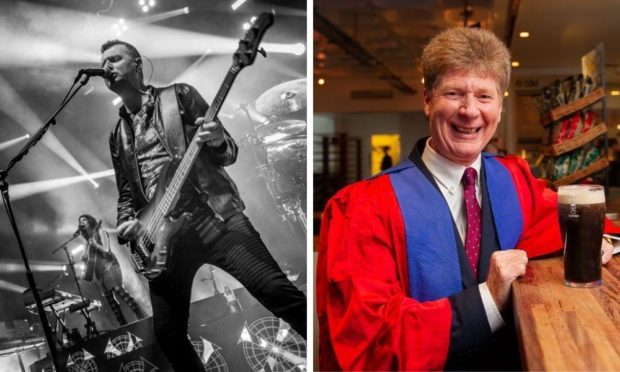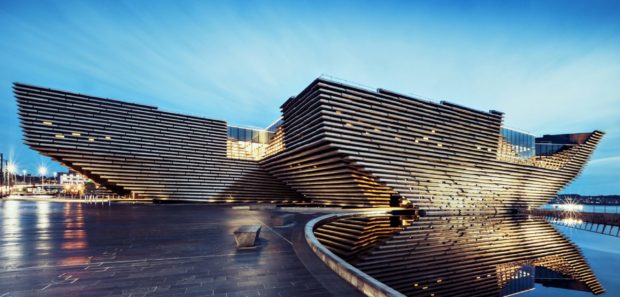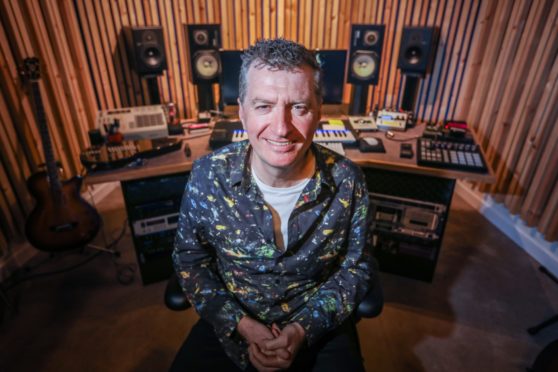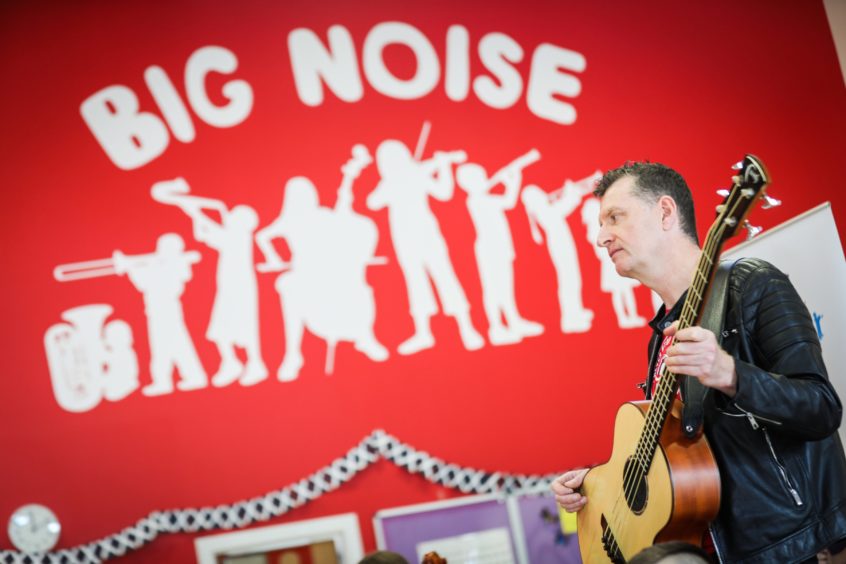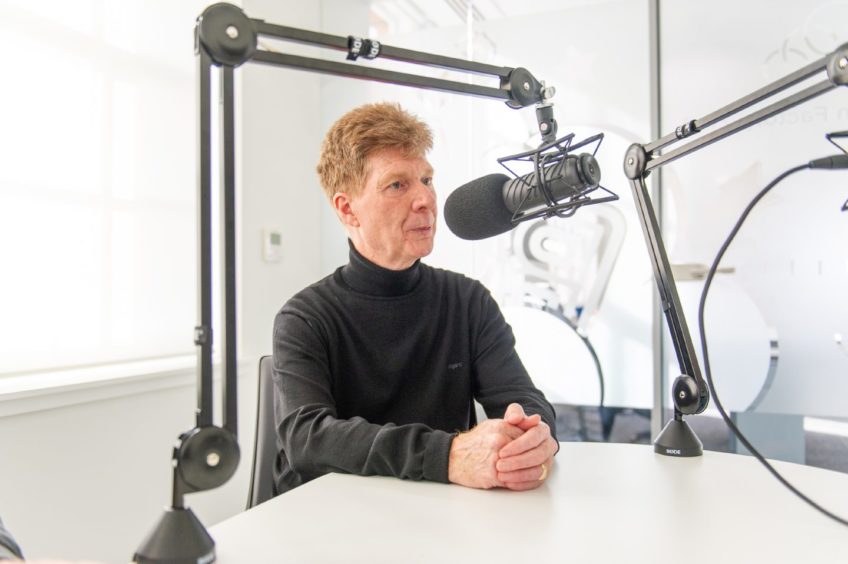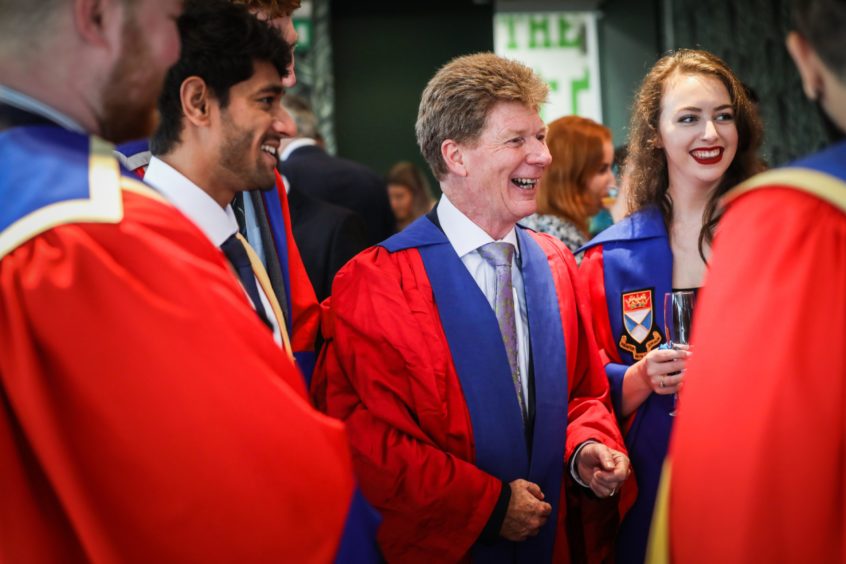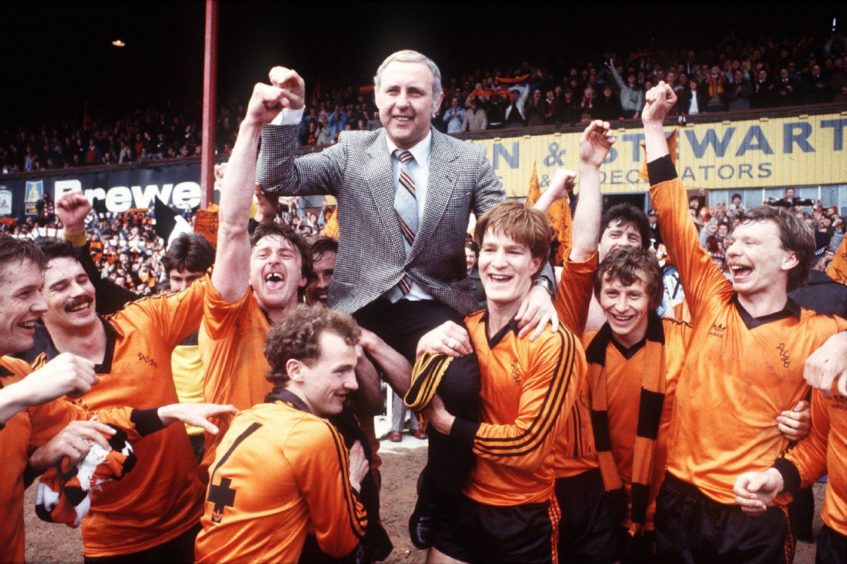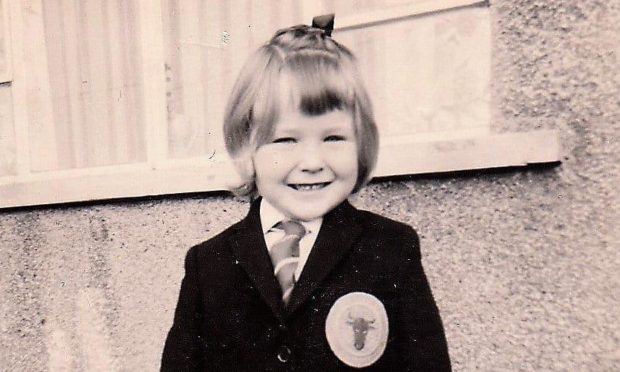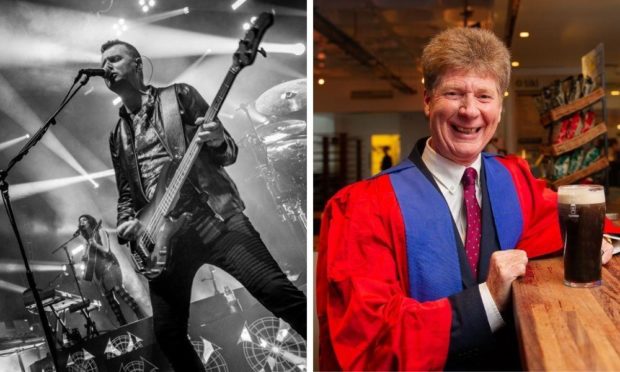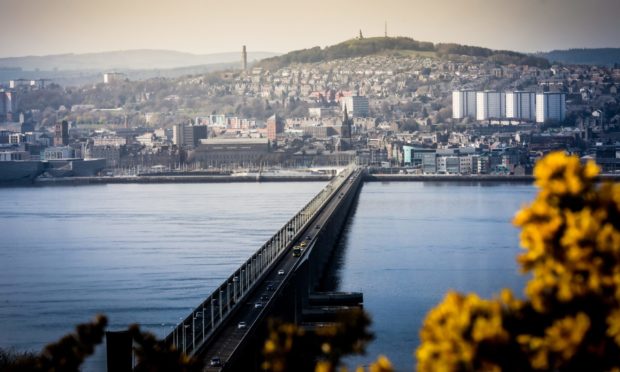Dundee was this week named one of the world’s 21 places of the future alongside the likes of Toronto, Atlanta…and Outer Space.
It was the only UK city to feature in the report by Cognizant’s Centre for the Future of Work, which examines how work is changing in response to new technology.
Here, two Dundonians who have travelled the world in the fields of music and sport – Simple Minds bass player Ged Grimes and broadcaster and Courier columnist Jim Spence – have their say on the City of Discovery and the place they are proud to call home.
Dundee has been absolutely pivotal in my other career, making music for computer games, says Ged Grimes.
(Minecraft entrepreneur) Chris van der Kuyl has been a friend of mine for years and when we sat down to work on our first game together, the music was regarded as an incidental thing.
In in the last 20 years it’s become central to the games process and for me, it’s one of those things that could only have happened in Dundee.
Now when I go to America and other places and tell people I’m from Dundee, the place that gave the the world Grand Theft Auto and Minecraft and Lemmings – they see it as a powerhouse.
Technology means you can be located anywhere now, the last big game I worked on was with a company in New Orleans. But when I started out in the music industry with Danny Wilson in the 1980s we had to move to London.
The great thing was you stood out.
But I think there was a sense then that Dundee was a city that had a past and less of a clear idea about its future, and you can’t say that now.
There’s a can-do attitude to the place and the people.
The 1980s maybe weren’t a great time for the city – a lot of the old industries were going – but people just got their heads down and started doing the things that had to be done to get us to where we are now and a lot of the creative industries that are doing really well grew out of that spirit.
I think the size of the city is important.
Everyone knows each other, so it’s easy to scale up when you have a project that suddenly takes off because you know a couple of musicians who can help, or you know all the people in the gaming industry.
I find people in Dundee are less competitive than in places like London too. There’s a sense of collective responsibility – if we stick together we can all be lifted up.
People have a confidence in their own abilities that means they don’t feel threatened when they give someone else a leg up and that benefits the whole city.
Keeping the talent in Dundee
A lot of people deserve credit for the huge range of creative industries in Dundee right now.
Look at all the smaller companies that started as spin-outs from the likes of Abertay University and initiatives like Dare to be Digital.
People had the foresight to say ‘okay we’re turning out all these amazing graduates, let’s find a way to keep all that potential talent in the city’.
As a Dundonian it’s easy to take that for granted but sometimes when you stop and look at it through the eyes of other people it’s gives you a real kick up the backside.
There are still challenges of course. We can’t allow it to become a two tier society.
It’s got to be inclusive and there are still people in the city who are not doing so well. We have to make sure the successes trickle down to everyone.
But honestly, there’s nowhere else I’d rather be.
It’s great to see Dundee getting this kind of recognition, says Jim Spence.
And it’s nice to see everyone jumping on the bandwagon of celebrating the city’s success but I do find it irksome when I hear people talking about what’s happening now as if it’s something out of the ordinary.
There seems to be this idea that Dundee is suddenly doing well for itself after long years when everything was terrible but really the city has always been held in high regard around the world.
‘The sense that Dundee always lagged behind is untrue and quite offensive’
You hear it from some of the professional Dundonians, as I call them – folk who haven’t lived in the city for years. Historians too.
This sense that Dundee has always lagged behind. It’s just not true and I find it quite offensive.
It’s not so long ago that Dundee was a bigger city than Aberdeen.
In the post-war years it was thriving. This image of a bustling, vibrant city hasn’t come out of nowhere – it’s been the reality for a long, long time.
Yes it went into a brief period of industrial decline in the 1980 but that was the bit that was out of the ordinary – not the recovery that has happened since.
The growth we’re seeing now has been the result of a recalibration rather than anything more dramatic.
We’re back on course, with a slightly different focus, but this is the direction we’ve always been going in.
Overseas adventures thanks to football
The other thing you have to remember is that Dundee has always enjoyed a good reputation overseas.
It’s only here in Scotland that people had this very dated view of the city.
I did the bulk of my travelling as a sports reporter – throughout Europe mostly and further afield.
And wherever you went, from Athens to Madrid and Moscow, people knew about Dundee and held it in the highest regard – largely because of its successes at football.
The people I met in other countries regarded it as a world class city even when people at home didn’t.
They didn’t know about Hearts or Hibs but they could reel off the names of United players.
‘A city punching above its weight’
More recently, I travelled a bit in my role as Rector at Dundee University and again, when we went abroad people knew all about Dundee and understood it to be a city that punched above its weight in areas like dentistry, and biotech and the creative industries.
It was only really in Scotland – Glasgow in particular, dare I say it – that the parochial attitudes persisted and you encountered this sometimes astonishing ignorance about what Dundee was really like.
If reports like this help to put all that behind us – here at home, as much as in the rest of the world – I’ll be happy.
